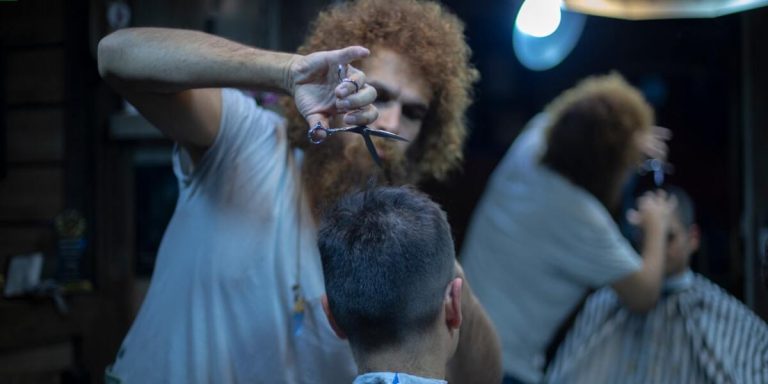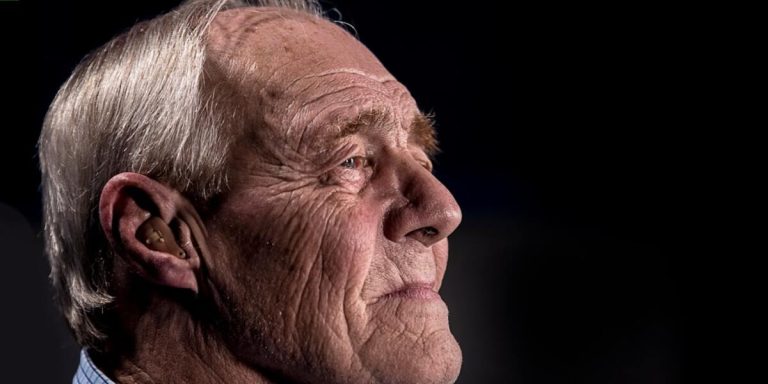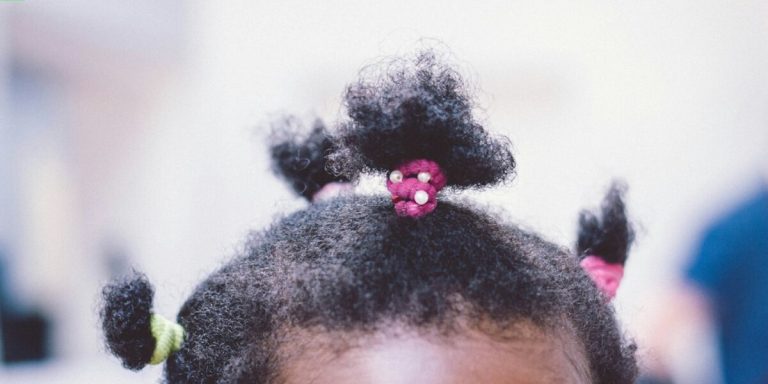Vitamin Deficiency that Causes Hair Loss: A Detailed Examination
Hair loss can be disheartening, and quite often it isn’t just about aging or genetics. One possible factor behind thinning tresses is a “vitamin deficiency that causes hair loss”. Undoubtedly, the lack of essential vitamins in your diet may directly affect the health of your hair resulting in excessive shedding or bald spots.
On this article, we’ll delve into how deficiencies in specific vitamins contribute to hair fall. We aim to offer you comprehensive insights around this topic while also suggesting workarounds including dietary changes that could potentially alleviate such concerns.
Did you know?
Little known fact: Deficiency in Vitamin D, often underrated, can actually lead to alopecia areata – an autoimmune condition causing patchy hair loss.
Understanding Hair Loss: The Role of Vitamin Deficiency
Hair loss can be a challenging issue to delve into considering there are countless factors causing it. One such factor that’s often overlooked is vitamin deficiency, which is instrumental in maintaining healthy hair growth and the overall health of your scalp. Our body needs an array of vitamins for different functions; any shortage or absence thereof can lead to unwanted repercussions, with hair loss being one.
Take Biotin (Vitamin B7), for example – its primary function includes supporting skin- , nail-, and hair-health alongside aiding metabolic interactions like glucose synthesis and fatty acid metabolism. A lack of biotin in our system may give rise to thinning or splitting of hairs leading ultimately toward noticeable hair loss. Similarly, low on Vitamin D might disrupt the new-fangled cycle of follicular development resulting again – you guessed right: Hair Loss!
Another vital player-vitamin ensuring robust tresses is Niacin (Vitamin B3). It plays a crucial role by pumping up blood circulation throughout the scalp thereby helping nutrients reach each individual strand from their roots upwards effectively nourishing them all through.
But if your diet primarily lacks this particular nutrient – signs won’t wait long before they start surfacing starting usually with brittleness followed gradually yet steadily by extreme cases falling strands as we comb or brush through daily.
Identifying Key Vitamins Linked to Healthy Hair Growth
A myriad of factors contribute to hair loss, with vitamin deficiency being a prominent one. In the world today where our meals are shockingly less nutritious than they used to be decades ago, many people find their diets lacking in essential vitamins required for healthy and robust hair growth. This section delves into key vitamins whose insufficiency can trigger hair thinning or even fallout.
Firstly, let’s start with Vitamin A. It aids cell growth throughout your body- including those responsible for promoting shiny and bouncy locks! However, while this nutrient is critical for maintaining lush tresses it’s important not to consume too much as an excess might prove detrimental leading to potential baldness over time.
Next on our list – The B-Vitamins; rich in biotin which has been linked repeatedly by scientific research towards preventing brittleness and improving overall strength of your mane when consumed sufficiently regularly within balanced dietary proportions.
Vitamin C is another vital ingredient contributing directly towards production of collagen – a protein known widely across beauty circles due its role repairing tissues plus creating more skin cells resulting ultimately healthier fuller strands sprouting from scalp surface above other benefits like warding off premature graying effect.
Signs and Symptoms Indicating a Potential Vitamin-Related Hair Loss
Hair loss often leaves many people in a confused state, not knowing the root cause. One factor you might be overlooking is vitamin deficiency that causes hair loss. Recognizing early signs and symptoms can help mitigate this issue.
Firstly, pay close attention to thinning on top of your head or crown area. This is usually the first sign indicating nutrient-related hair loss. You may notice more than usual strands coming off when combed or showered.
Secondly, observe visible changes such as dullness, brittleness or split ends in your once healthy locks. A balanced mix of vitamins like Vitamin B7 (Biotin), Vitamin D and E are essential for maintaining hair health; their shortage could spark these unpleasant changes.
Additionally, an unusual rate of shedding could also point towards a possible vitamin imbalance causing unwanted hair fall-out . Generally losing 50-100 strands daily is considered normal but anything beyond requires detailed scrutiny .
Then there’s sudden weight gain due to slowed metabolism related to insufficient intake of necessary nutrients including Vitamins B6/B12 which directly affects follicle nourishment thereby accelerating balding process .
Lastly , unusual tiredness despite getting ample sleep indicates body fighting against multiple deficiencies simultaneously among them being responsible ones: Iron & Zinc linked with oxygen supply/ blood circulation promoting voluminous growth respectively .
By paying heed to all these potential warning signs it would be easier identifying if any lurking nutritional imbalances partaking significantly contributing towards unexpected alopecia issues.
Investigating Common Vitamin Deficiencies That Lead to Hair Thinning
When it comes to hair thinning, various factors come into play. One such factor that has been largely investigated by health experts and proven through scientific research is the connection between vitamin deficiencies and hair loss. It’s discovered that specific vitamins are crucial in maintaining a healthy scalp and promoting hair growth; thus, their lack can severely impact this process.
Vitamin A tops the list as one of the most essential for robust hair growth due to its role in cell development across our bodies. However, an overconsumption or underconsumption could result in adverse effects on your crown of glory – balance is critical here! Equally important are B-vitamins (especially Biotin), which aid vital metabolic activities including oxygen supply to follicles leading to enhanced strength.
Another key player associated with significant hair fall issues is Vitamin D deficiency owing primarily because we synthesize most of it through sun exposure – something many people miss out on today more than ever! Subsequently Vitamn E also plays a pivotal role by providing strong antioxidant properties protecting cells from stress-related damage often linked with excessive shedding.
The Impact of Iron Deficiency on the Hair Follicle Lifecycle
Iron deficiency is a widespread issue that often goes unnoticed. It’s an important vitamin deficiency that causes hair loss, affecting the lifecycle of your hair follicles significantly.
Your body requires iron for various functions but most importantly to produce hemoglobin – a protein in red blood cells responsible for transporting oxygen from your lungs to all other parts of the body including your scalp. A shortage could disrupt this supply and negatively impact your hair’s health.
Hair follows a specific growth cycle – Anagen (growth phase), Telogen (resting stage) and Catagen (shedding phase). In normal circumstances, 80-90% of our hair strands are always in the anagen phase which lasts about two to seven years while only around 10%-20% remain in telogen simultaneously, lasting some months before they’re shed naturally.
When faced with iron scarcity though, this biological clockwork is thrown off balance. The duration of the anagen phase shortens leading more hairs into premature transition towards shedding stages earlier than expected. This condition known as Chronic Telogen Effluvium manifests itself by diffusing thinning over entire head rather concentrated bald patches..
In addition to impacting cycles on existing follicle levels ,iron inadequacy can also deter adequate new hair generation since it hinders proper cell division necessary during their formative process.
How Inadequate Levels of Biotin Can Precipitate Excessive Shedding
Biotin, a type of Vitamin B, plays an instrumental role in maintaining healthy hair. When our bodies don’t get enough biotin intake or fail to absorb it effectively from the foods we consume, it can lead to excessive shedding and potentially ignite male pattern baldness or female hair thinning. This substantiates how crucial this nutrient is for our holistic health.
A predominant symptom of biotin deficiency includes severe hair loss across the scalp area. The lack thereof reduces keratin infrastructure’s robustness — a protein that strengthens your follicles and gives structure to each strand on your head— contributing significantly towards drastic shedding episodes.
Individuals experience vitamin deficiency and untimely fallout episodes because of several reasons.
1) Being avid consumers of raw eggs: Raw whites are loaded with Avidina – a kind of protein which forms tight bonds with biotins preventing their absorption by human intestines causing deficiencies.
2) Long-term medication patterns: Prolonged consumption of certain prescribed medications such as antibiotics disrupts natural body mechanisms leading to poor absorption levels.
3) Inherent medical conditions (Crohn’s disease): Certain digestive disorders tend not only interfere but also limit vitamins’ systematic uptake resulting in below optimal quantity presence within one’s system affecting overall physical wellness including intense shedding.
Strategies for Combating Hair Loss Due to Nutritional Shortfalls
The connection between hair loss and vitamin deficiency is an area of interest that has garnered heightened scrutiny in recent years. In the quest for healthy strands, nutritional well-being cannot be overlooked as it plays a paramount role in determining the thickness, sheen and strength of our locks. However, many people find themselves on a losing battle against thinning tresses despite their best efforts.
Vitamin deficiencies are one significant reason behind this unwelcomed phenomenon which can disrupt your dream of sporting luscious manes effortlessly. A balanced diet rich in necessary nutrients serves as fuel to follicles promoting hair growth while averting excessive shedding simultaneously. If you’ve noticed unusual strand breakage or distressing bald patches recently, low levels of specific vitamins could possibly be why.
To effectively combat hair loss due to nutritional shortfalls, implement the following strategies:
- Understand the connection between nutrition and hair health to proactively address issues before they worsen into conditions like alopecia areata or totalis.
- Incorporate wholesome foods rich in key vitamins essential for robust scalp health.
- Schedule regular check-ups to accurately monitor nutrient intake and prevent any further hair loss due to inadequate nutrition.
Adopting a Balanced Diet Rich in Essential Vitamins and Minerals
Integrating a well-rounded diet teeming with vital nutrients can be an effective strategy in preventing hair loss caused by vitamin deficiencies. Notably, certain vitamins and minerals play crucial roles in maintaining healthy locks.
To start with, the importance of Vitamin A cannot be overlooked. This component is actively involved in various body functions including cell growth; hence its deficiency can lead to hair loss problems. Integrate foods like carrots, sweet potatoes or spinach into your meals daily that are rich sources of this vitamin.
Next on our list is B-Vitamins, particularly Biotin which has often been associated as a significant contributor to hair health and growth patterns. Foods such as eggs, whole grains or meat contain notable amounts of these vitamins while offering other nutritional benefits also for overall wellness.
Iron plays an instrumental role too when it comes to preserving robust scalp health due to its part in red blood cell creation needed for oxygen transport around the body cells inclusive of those forming strands.
Deficiency symptoms involving iron manifest through brittle nails apart from thinning head coverings so watch out! Ensure you’re consuming enough lentils or leafy greens hitting targets recommended where necessary dietary intake’s concerned around this mineral area specifically ensuring undoing any potential ‘vitamin deficiency that causes hair loss’ situations effectively at their roots!
Supplementing with Specific Vitamins Known to Support Scalp Health
Notably, vitamin deficiency is often a lesser-known cause of hair loss. A balanced diet plays an essential role in maintaining overall body health, and the same applies to ensuring proper scalp and hair health. Supplementing with specific vitamins known for supporting scalp health can work wonders.
Vitamin A: It all starts with Vitamin A as it aids skin gland production of sebum- an oily substance crucial in moisturizing your scalp and keeping your hairs healthy. Dryness caused by lack of sufficient sebum could lead to a brittle environment causing gradual hair fall.
B-Vitamins (especially Biotin): When discussing about counteracting vitamin deficiency that causes hair loss, we cannot ignore B-vitamins other than specifically highlighting biotin’s contribution towards healthy tresses. They help create red blood cells which carry oxygen and nutrients to the follicles thereby enhancing their ability to promote growth.
Vitamin D: Numerous studies have suggested direct correlations between Hair Loss Causes like alopecia areata (a condition causing patchy bald spots) or female-pattern baldness due to low levels of Vitamin D . Some sources include fatty fish, fortified dairy products but also exposure from sun rays can give you generous amounts required daily.
Conclusion
In the complex puzzle of hair health, a vitamin deficiency might just be that one missing piece causing your strands to shed more than they should. Knowledge is power; understanding the link between “vitamin deficiency and hair loss” could be your first step towards healthier locks.
Don’t stop here. Take control of your mane’s destiny by uncovering all potential causes for its thinning or shedding on our website. Be ringmaster rather than spectator in this circus act called “Hair Loss Causes”.
Our informative articles are always ready to guide you through each stage seamlessly!







